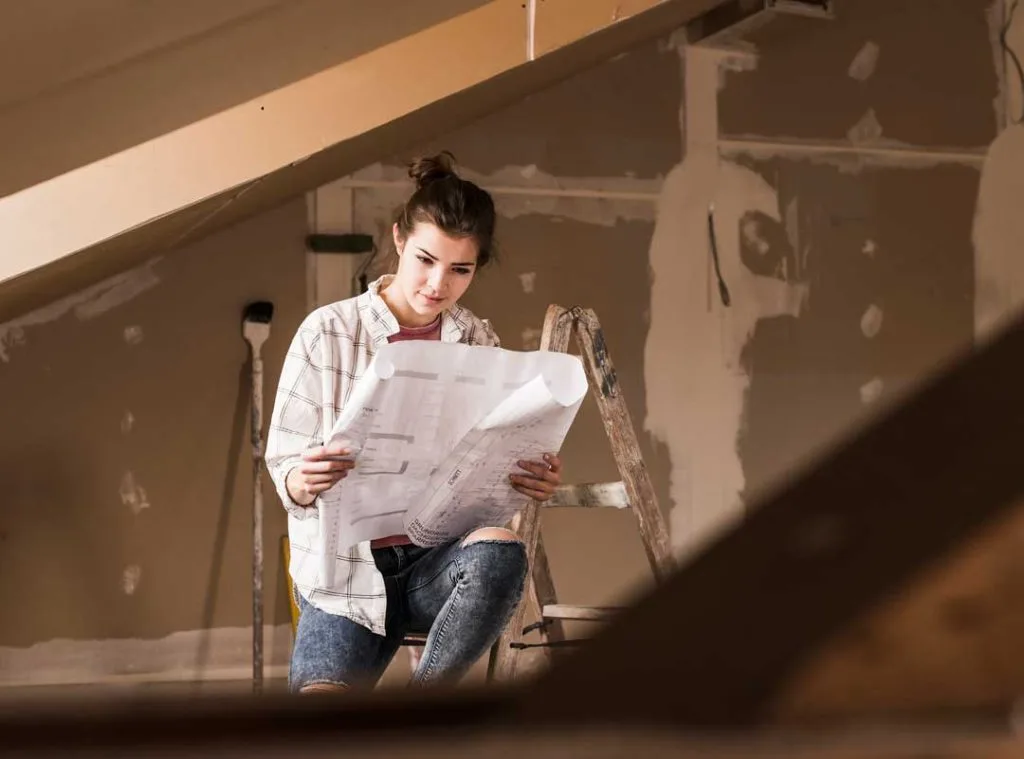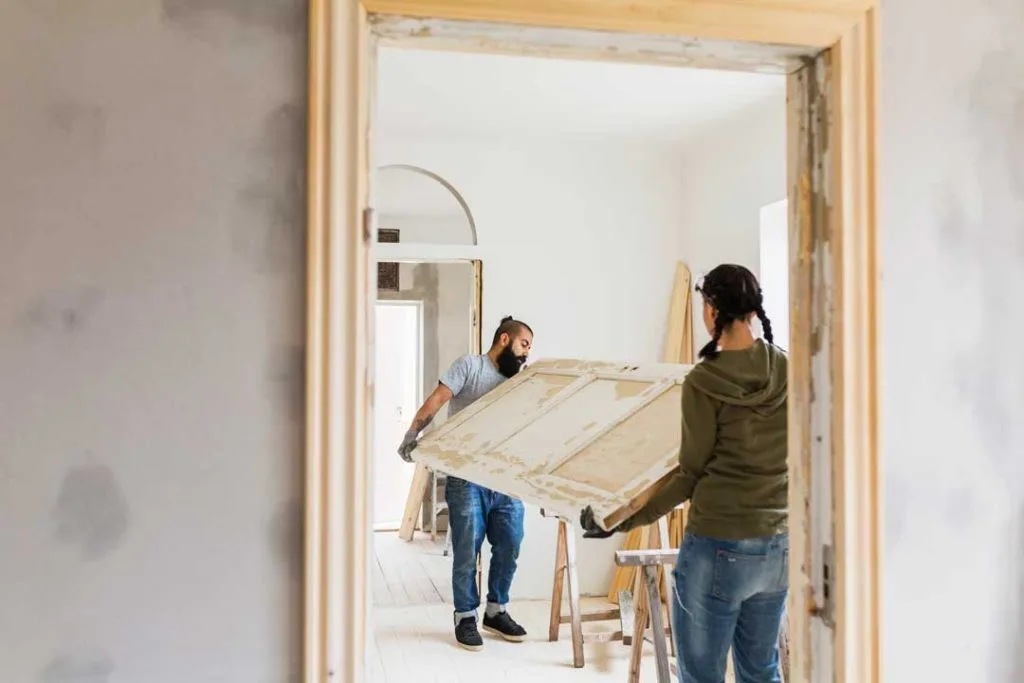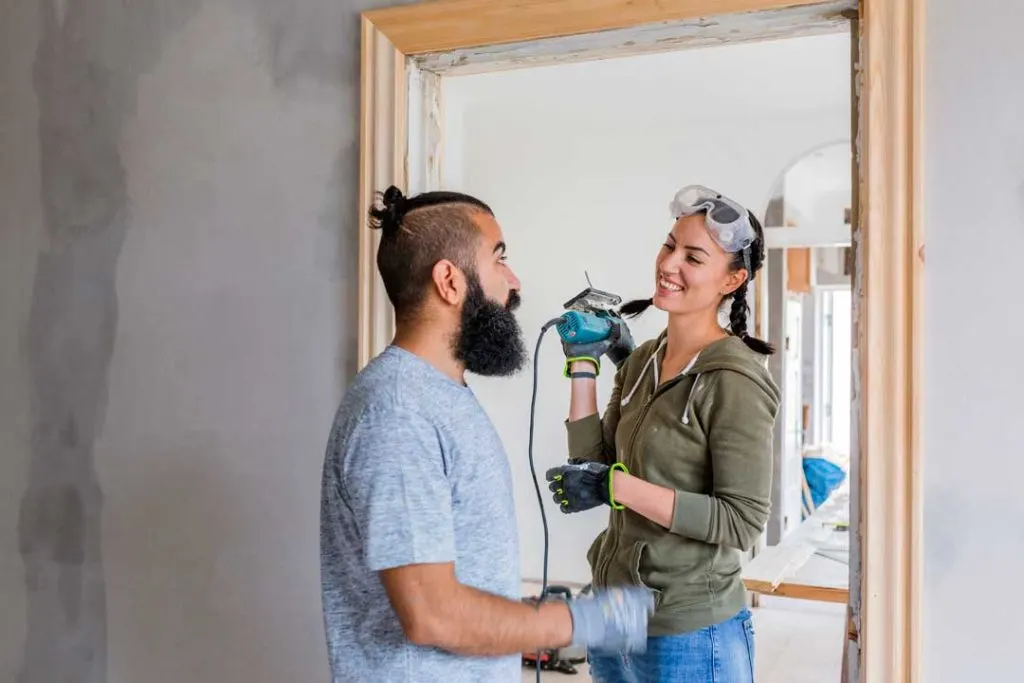Planning a renovation? Smart home renovation planning ensures your project stays on budget, adds value, and enhances your lifestyle.

By preserving or increasing your property’s value, you protect your investment and ensure a higher valuation when you decide to sell. This financial gain can be reinvested in your new home or an improved lifestyle, empowering you to make strategic decisions about your property. But your home is about more than what it is worth or an asset in your portfolio, right?
Home Renovation Planning: Key Steps for a Stress-Free Remodel
Your home should be far from being a tool to make you money; it needs to work for you, and any investments you make should be to improve your lifestyle and your quality of life right now. Otherwise, you might find you’re just wasting money on things you think people want or you should have, not what you actually need.
So, what should you consider when looking to renovate your home and add value to your lifestyle and financial investment?
Functionality
When planning your renovations, always prioritize functionality over aesthetics. It’s crucial that any added features not only look good but also enhance your quality of life. This approach will give you the confidence to make informed decisions about your home.

Let’s take patio doors, for example. While certain styles might look more aesthetically pleasing and give you that feeling or vibe you covet, if they are not practical for the space, is it really a worthwhile investment?
For example, if you add French-style patio doors to a small dining room or kitchen and they open inwards, blocking space or reducing access, is it going to be a good investment or something you can live with? In this case, sliding patio doors or pack and bi-fold doors might be a better alternative. Your local patio door replacement company can help you understand the different style options and what will work best for the space you have.
Apply this thinking to all aspects you are considering changing to ensure they have functionality required and are not going to be expensive mistakes.
Maximum Values
Before making any changes, take some time to check out local house prices in the area and what people are paying for different types of property and features. If you are not saying this, it won’t actually matter as much, but if this isn’t your forever home, it’s something you need to be aware of.
For instance, adding a high-end swimming pool to a modest home in a neighborhood where most homes don’t have pools might not significantly increase the property’s value.

Similarly, installing a state-of-the-art home theater system in a small apartment might not be a wise investment. The reason is that many areas have a ceiling for property prices, which is the maximum people will be willing to pay for a home of your size and location.
This won’t likely increase regardless of what you add or change and the quality of the work or materials you opt for. More elaborate and expensive changes might price people out of the market and make the property more expensive than they’re willing to pay to live there.
And this can result in you making a massive loss. So before you put your hand in your pocket and draw up plans for complex budget-busting renovations, ask yourself if people are willing to pay for these and what you can expect to recoup if you sell.
Permits and Restrictions
This is especially important for homes that are part of a Homeowners Association (HOA), as you might have restrictions on the scope and type of work you can carry out. You need to investigate what type of work needs permits or permissions and what won’t be signed off or allowed for your area or specific property.
Heritage sites can have many restrictions on them in terms of modernization, and HOAs can have varying levels of acceptance and approval depending on the changes you want to make.

So, before you move ahead with the renovation work, know what you can and can’t do and adjust your plans accordingly so you won’t have to undo all of the work you have paid for once it is completed.
Budget
Renovations are notorious for being money pits, and once you start, you might find that you are throwing more and more money into issues you did not know or were aware could exist, especially if it’s an older property.
Before you start any work, make sure you have an idea of your budget, the cost of your plans, a contingency fund, and an idea of what can go wrong. Because the more your budget is able to handle unexpected complications, the easier it will be to keep moving forward.
Time Constraints
Much like the point above, the timing for renovations can vary wildly, and even the best-laid plans can result in extended timeframes running over deadlines.

Recognize that timeframes are guidelines, not exact deadlines. This helps you understand the project’s scale and avoid unrealistic expectations.
It also allows you to adjust your lifestyle accordingly and make plans to help you transition through the works, especially significant renovations.
Lifestyle
It’s important to remember that all types of renovation work will bring disruption to your lifestyle. Before you even start drawing up plans, you need to be aware of how you will be impacted and mentally prepared for the upheaval it will cause. Not everyone can or wants to live on a building site, so it’s crucial to consider this aspect before starting the renovation.
A good motto to bear in mind is to plan for the worst and hope for the best. The worse you expect things to be, the more accommodations and changes you can implement to adjust how you live for this period.
While it might sound unrealistic to expect to live in awful conditions or for things to go wrong, it is advised to avoid going in too optimistic and then being crushingly disappointed when things don’t go as you plan. But when the opposite is true, it can help boost your mood if it’s not as bad as you anticipated.
Wants and Needs
The problem with renovations is how easy it is to focus on wants over needs. Instead, consider why you’re renovating. Prioritize what your home needs over just how you want it to look.
Adding features because the neighbors have will lead to you not being happy with the end result or potentially living with something you don’t need but simply wanted because others have it.
When planning your renovations, it’s crucial to be aware of how you live and what changes will benefit you. Instead of focusing on what you want, it’s important to incorporate what you need.

This approach will help you achieve a harmonious balance and an effective result once the renovation is completed.
The Ultimate Home Renovation Planning Guide for Homeowners
Home renovations can help you create the home of your dreams. They also give you a space to enjoy and feel proud of. However, doing them for the wrong reasons can backfire. If you’re renovating just because others are or expecting a massive property value boost, think twice. Before committing, consider these key points. They will help you stay on track and make the best decisions for your home.
Take your time and think through every detail. Consider planning, permits, and budget limitations before starting. Ensure the changes will improve both your home and your life.

Jessi is the creative mind behind The Coffee Mom, a popular blog that combines parenting advice, travel tips, and a love for all things Disney. As a trusted Disney influencer and passionate storyteller, Jessi’s authentic insights and relatable content resonate with readers worldwide.
